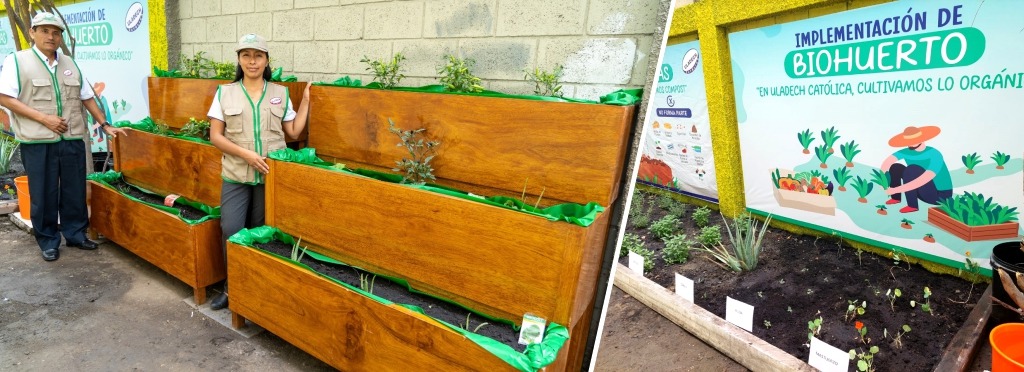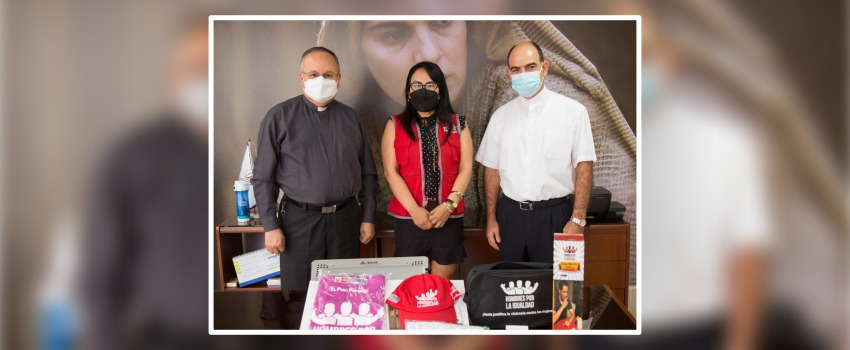A series of vegetables such as matico, hierba luisa, hierba buena, mint, aloe, cedrón, ruda, ají, rocoto, carrots, Chinese onion, camomile and lettuce have been cultivated with great care and commitment in the bio-garden that has just been implemented at the Universidad Católica Los Ángeles de Chimbote in order to promote environmental sustainability.
This important project called “In ULADECH Catholic, we grow organic” has been carried out by the Coordination of Environmental Management with the purpose of putting into practice the sowing, management and cultivation of fresh food crops, without chemicals or pesticides, which contribute to a healthier and more nutritious diet.
At the same time as this significant environmental initiative, a composting project called “At ULADECH Católica, we produce compost” was implemented, the aim of which is to reuse organic waste generated on the university campus, transform it into compost (fertiliser rich in plant nutrients), reduce the environmental impact and promote sustainability.
Both the bio-garden and the compost bin were implemented on the Health Sciences campus of ULADECH Católica with the support of gardening specialist Paul Rodríguez González.
“Composting is important because it reduces the amount of waste, improves soil quality, and reduces the use of chemical fertilisers. Meanwhile, biogardens offer a sustainable and healthy way to produce fresh food and reduce dependence on store-bought food,” said Mg. José Luis Gutierrez Aponte, coordinator of Environmental Management.




